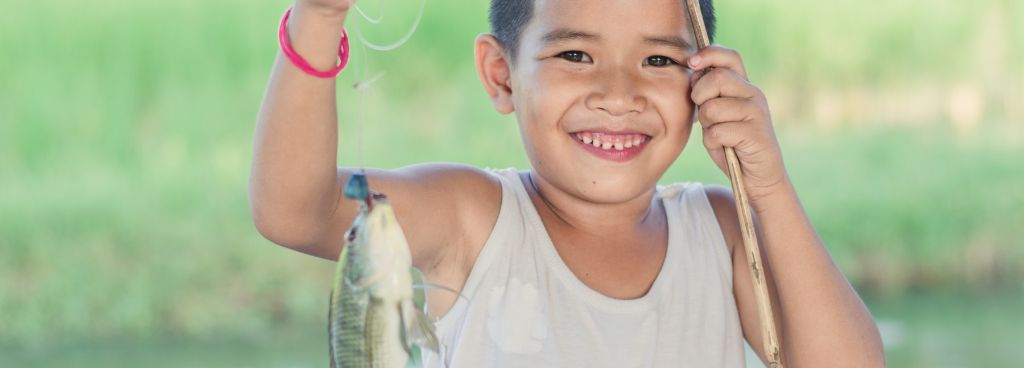Stories Worth Reeling In...
Last Updated on October 6, 2023
Teaching kids about fishing licenses not only helps them understand the legal requirements but also instills in them a sense of respect for the environment and the importance of preserving fish populations.
Stay tuned for the following sections where we will dive into the details of fishing license regulations, the benefits of teaching kids about fishing licenses, and practical tips for introducing your children to the world of fishing responsibly.
Table of Contents
While age requirements and exemptions can vary between states and jurisdictions, many places have specific rules in place to ensure a safe and enjoyable fishing experience for kids. These regulations often take into account the age of the child and the type of fishing being pursued.

According to Texas Parks & Wildlife fishing regulations, children under the age of 17 do not need a fishing license. The methods for obtaining a fishing license differ by state, as do the laws. Check your state and local fishing laws to see if your child needs a fishing license or when they should get one.
Fishing on public piers does not require a license. On Free Fishing Days, no license is required. Anglers under the age of 16 do not require a license, although they do need a report card for certain species.
Fishing licenses for kids offer numerous benefits that extend beyond the act of fishing itself. Let’s explore the advantages that these licenses bring to young anglers:
Fishing licenses provide an excellent opportunity to educate children about responsible fishing practices, conservation, and fishery management. By obtaining a license, kids learn about the rules and regulations that govern fishing, such as catch limits, size restrictions, and fishing seasons.
Fishing licenses play a vital role in funding fish and wildlife conservation programs. The revenue generated from fishing license fees is often directed toward the conservation and management of fish populations, habitat restoration, and research initiatives.
By purchasing fishing licenses for their kids, parents contribute to these conservation efforts, ensuring the preservation and sustainability of fishing resources for future generations.

Fishing licenses open up a world of experiences for kids, allowing them to connect with nature in a meaningful way. Through fishing, kids develop patience, concentration, problem-solving skills, and an appreciation for the beauty of the natural world.
Fishing licenses provide a sense of legitimacy and empowerment, enhancing kids’ fishing experiences by granting them the freedom to participate in fishing activities with confidence and excitement.
The least difficult element is obtaining a fishing license. The more difficult part is teaching your children to fish in a pleasant and sustainable way. Keep a good attitude while they learn the ropes so they don’t get discouraged!
You must teach him how to cast a line in the ocean with a kayak without becoming tangled. You should be prepared to purchase more than one line because it is common for children to lose a few during their learning period.
Get them a couple of kids’ fishing rods so you have an extra in case your child loses it. If you’re going to get wet, you should also acquire kids’ waders, a life jacket, and a cap to keep them safe.
Non-resident children typically need fishing licenses in most places. The rules for non-resident kids are usually the same as those for non-resident adults.
Fishing without a required license, even for kids, can result in fines or penalties. It’s essential to be aware of the local fishing regulations and ensure your child has the necessary license if mandated by your area’s rules.
In conclusion, let us take the necessary steps to educate ourselves and our children about fishing licenses, involve them in the process and create lasting memories through responsible fishing practices.
By doing so, we can ensure that fishing remains a cherished pastime and a means to connect with nature for years to come.